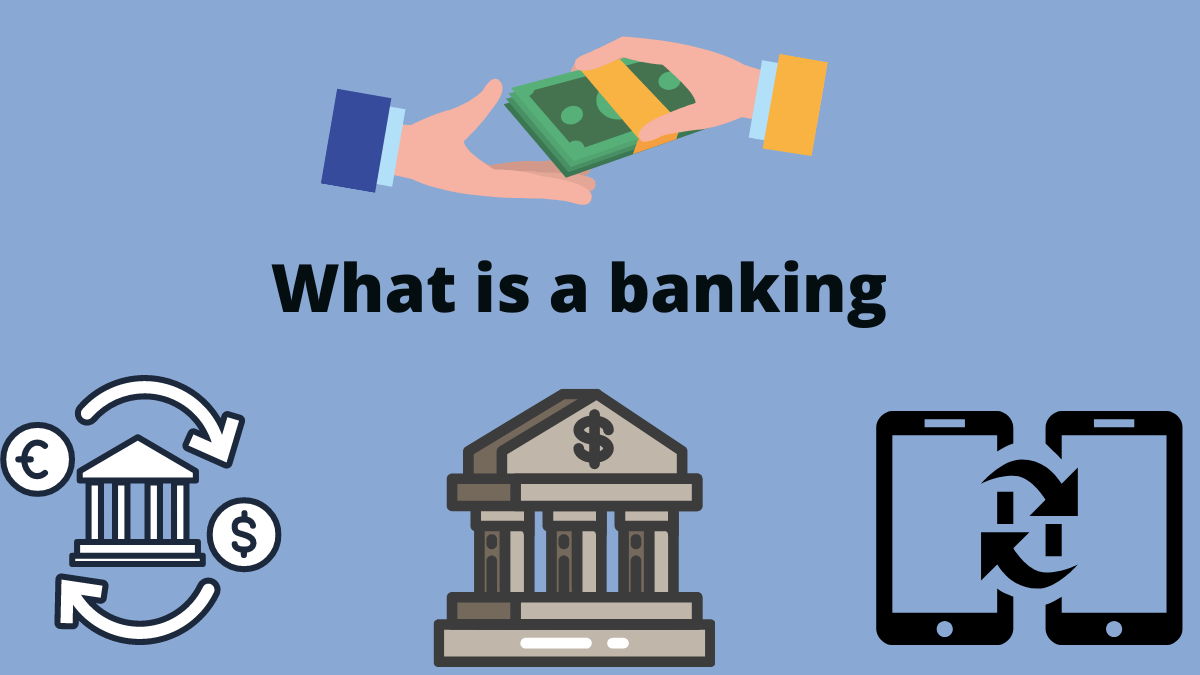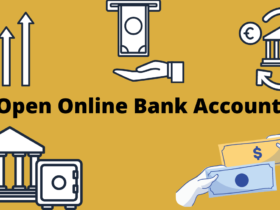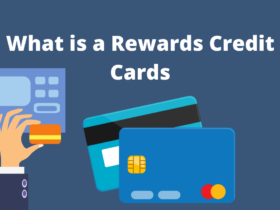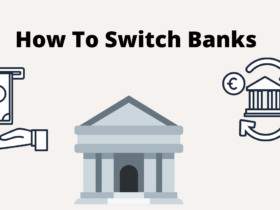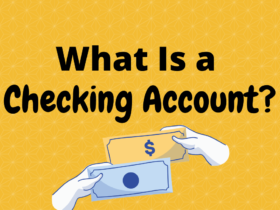Do not most of us feel very secure the cash earned from his work under his pillow at night, so we had to open a bank account and return our cash to the park. Banking and credit unions help protect your money and they can also increase your property depending on the type of bank account you chose.
It can be challenging to choose the right banking or credit union account, especially for those who are new to banking. By the end of this guide, you should understand the differences between banks and credit unions, types of bank accounts, what to look for in a bank account, and how to open a bank account and fund your account. Kn
What is a Bank?
- Banking – Banks can work online or they have a solid construction you can put that can go to your transactions or to deposit or withdraw money. Some banks also allow you to buy and sell securities.
- Credit Union – Credit unions are alternatives to traditional commercial banks and do the same work. You can deposit and withdraw money, and investment services. Credit unions are run by the personnel on non-profit are financial institutions, and members work and managed. On the contrary, work to earn a profit for traditional banks.
- Federal Deposit Insurance Corp (FDIC) – Banks FDIC insurance that typically Federal Member of Reserve System. FDIC is a government organization that funds the state and makes deposits in national banks.
- Annual Percentage Yield (APY) – The APY is the amount of interest you’ll earn on the money you have deposited in your bank account each year. It’s the amount the bank pays you for keeping funds in their account.
- Beneficiary – If you have deposited funds in a bank account, retirement plan, insurance policy, or trust, you will select a beneficiary or a person who will receive the money on your death as the account holder. You can also choose a beneficiary for your estate in a will.
What is a credit union?
Best for: Those who are good customers want service and brick and rates more favorable interest rate than mortar banks.
Not for: Interested in offering unusual products, like those of business bank accounts or money market accounts (not all credit unions offer these).
Credit unions are non-profit organizations owned by their members. The membership of each defines differently. Some only require paying a small membership fee to open a credit union account, while others only or allow people in a certain geographic area to join members of a certain organization, like the military and their family members, is. If you are considering a credit union, make sure that you are eligible for more than your membership requirements before you start filling out any application form to be included.
Most credit unions are small local or regional institutions. They do not have a large network of generally advanced online banking tools or branches or surcharge-free ATMs that people who can often be useful to visit. They offer less product than the big banks. But they still attract many customers because their customer service is often better than some big national banks’ and they often have low interest and loan rates at high interest rates on checking and savings accounts.
What is an online bank?
Best for: Those seeking the best interest rates on loans and bank accounts and advanced online banking tools.
Not for: Those who prefer in-person customer support and those who need fast access to their cash.
Online banks are fast becoming one of the most popular places for people to park their cash. They are similar to brick and mortar banks, except that they do not have any branch space. If you need help, you should contact the bank online by phone or email. Avoiding branches helps online banks keep overhead costs down and they are able to pass along their savings to their customers in the form of higher interest rates on bank accounts and lower interest rates on loans.
The biggest drawback of online banks is that it can be more difficult to access your funds. There are some bank ATM networks where you can withdraw cash for free, but if you do not live near one of them or need to withdraw a large amount of money at once, you probably Funds will have to be transferred to a bank account if you can withdraw your money in your name in a brick and mortar branch. This may take several days.
There is no clear winner in the brick-and-mortar banks vs. credit unions versus online bank battle. Proximity, favorable interest rates, customer service, or anything else – it’s all how you your money and it depends on your plan to use the utmost importance. Professionals and understand the cons of each type of financial institution you can begin to reduce the number of options.
Using a Bank Account
- Deposits – Deposits is the cash you put into the bank account whether it is a savings or chequing account. There are various ways in which you can make deposits such as:
- Someone wires the money into your account
- When you use the mobile banking app to scan and deposit a cheque
- You visit the physical bank, fill out the deposit slip, and hand over actual cash at the counter
- When your employer transfers your wages into your bank account
- When you transfer funds from another account into your own account
- Automated Teller Machine (ATM) – ATMs are automated devices that perform banking transactions. You can deposit cash, withdraw cash, receive information about the balance in your account, and also transfer funds between two accounts. If you want to make payments towards your loans, you can do that through an ATM.
- Available Balance – This figure is the amount that you can use from your account. In case there are any holds or restrictions on the account, the available balance will deduct that amount.
- Debit – When you withdraw funds from your bank account or make a payment, that is considered a debit. In any other situation, if you see a debit entry, it indicates the sum you owe to another person.
- Insufficient Funds – If you don’t have adequate funds in your account to pays bills, make cheques, or withdraw funds, that indicates insufficient funds.
- Electronic Funds Transfer (EFT) – When you make banking transactions without actually using cash, that’s called EFT. These transactions can include ATM transfers or automatic bill payments.
Online Banking Facilities
- Automatic Bill Payment – This feature is not available through the works without the need of using the Automated Clearing House that Czech is an electronic network for cash transactions. If you want to make automatic payments like says to pay utility bills each month, you can use this feature.
- Billing Cycle – This timeframe between once in two bank statements that have generally a month.
- Overdraft – Features that your bank than more Money can offer you to figure out is deposited in your account. You can withdraw the excess amount paid by a Czech or automatic bill. In that case, your account overdraft or withdrawn.
- Bank Statement – The bank statement is a report of the transactions you have made in a particular time frame, usually a month. It gives you complete details of the deposits, withdrawals, and any automatic payments you made at that time.
What is a savings account?
A savings account can earn interest on your money in a low-risk account. Banks and credit unions take the money you place in your savings and use it to finance loans for other customers. Then, they give you a portion of the interest they earn from taking the loan. The average savings account APY is 0.09%, but some high yield savings accounts provide APYs of over 2%. A higher APY will help your savings grow more quickly. While you can technically keep your savings in money accounts indefinitely, saving accounts is best for the money you plan to use in the next three to five years. Investing can be a long-term savings hope to beat inflation and actually increase your wealth over time.
Related – What Is a Savings Account: Explanation.
A savings account is the best option, so you often don’t expect to withdraw cash from your accounts. This is because of the fact that it is a federal statute of limitations under Regulation D of this savings account holders to six “convenient” withdrawals or transfers per month. Convenient transactions include online or phone transfers, bill payments or other recurring transfers, and overdraft transfers. If you have more than six of these per month, your bank or credit union will charge you additional fees. You can still make additional “inconvenient” withdrawals, however, if one visits a branch location, including requesting them from your financial institution or checking a mail from your bank.
Choosing the Right Bank Account
Banks can choose from different accounts. For example, the chequing account is linked to your debit card, ATM, and an automatic payment you want to make. You can also deposit money into a savings account that may not pay a high rate of interest, but reserves your money. In case you have a large number of additional funds, consider investing in some security that yields a higher rate of interest and helps you build wealth in the long run.
Now you have to choose the time to compare all the terms and know-how of the bank and the bank account, the best offer that. There are hundreds of different bank accounts you can get, all from different offers and conditions. It is best if you use CompareMyRates to compare all bank accounts at once. This process instead makes it easier to do everything manually.
How to open a bank account:-
Processor-
When you’ve finally selected the best bank or credit union account for you, the next step is to open the account. Follow these steps:
- Gather the important information and paperwork: You’ll need the following to open a bank or credit union account:
a. Full name
b. Address
c. Date of birth
d. Social Security number or tax ID number
e. Driver’s license or passport - Fill out the application form: Most banks and credit unions should have an online application form that you can fill out. If your bank or credit union has a branch, you can also visit it if you prefer to deal with a live person. You may need to print, sign, and mail your application form to the bank if it does not give you an option to submit it online.
- Fund your account: Your bank or credit union should provide you with information on how to fund your account once you’ve set it up. Usually, you have the following choices:
a. Deposit cash
b. Deposit a check or money order
c. Set up direct deposit with your employer
d. Transfer money from another bank
Read Also – Best Credit Cards in India 2021
